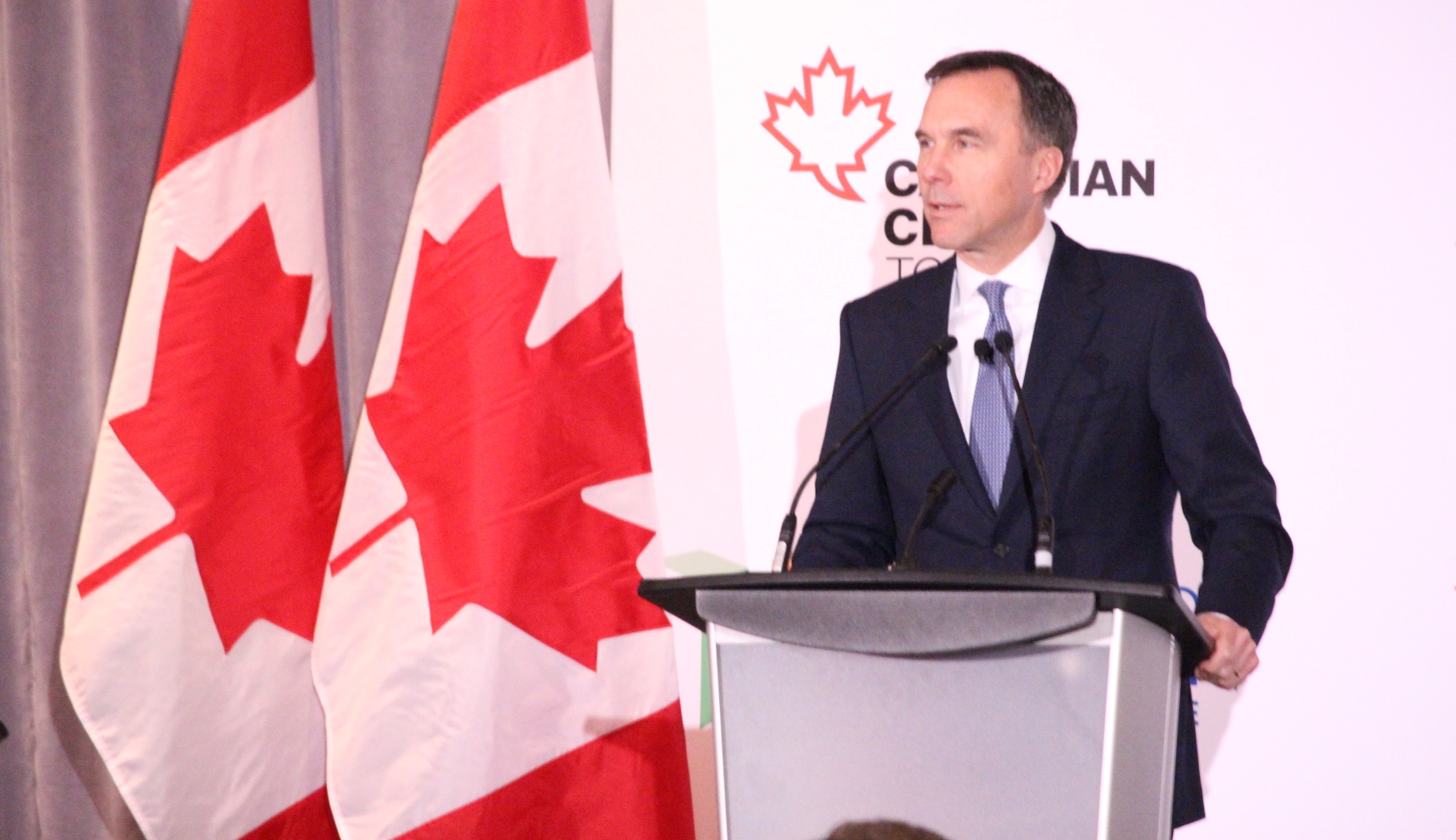What’s the best way to combat the housing affordability crisis in large cities across Canada?
Build more housing and heavily subsidize the builders, federal Finance Minister Bill Morneau and Toronto Mayor John Tory said in remarks to the business community on Wednesday.
Notably, neither made mention of measures like rent control or reining in Airbnb to make more properties available for long-term rather than short-term rental. Nor did phrases such as “speculation tax” — a taxation tool to discourage house flipping — fall from their lips.
Morneau said in a Q-and-A with Toronto Region Board of Trade president and CEO Janet De Silva that Tuesday’s federal budget included a $10-billion funding round for rental construction across Canada and a $300-million Housing Supply Challenge for municipalities.
“Because really the issue in a city like Toronto is very much about supply,” Morneau told De Silva at the joint breakfast event for the Toronto Region Board of Trade, Canadian Club of Toronto and Empire Club of Canada.
“We’re here to help with that, for sure!” responded De Silva in front of the gathering — which was sponsored by large organizations including BMO, TD and LiUNA, and which had head-table members from companies including the two banks and large developer Great Gulf.
Morneau also touted the budget’s First-time Home Buyer Incentive. It grants first-time buyers up to 10 per cent of the mortgage of a home as an interest-free loan from the Canada Mortgage Housing Corporate (CMHC). The CMHC receives in return its portion of the equity when the property is sold.
“It’s only 5 per cent if it’s a house that already exists; it’s 10 per cent if it’s new supply,” Morneau told De Silva. “So again creating an incentive towards new supply.”
Media questions drew attention to the business-friendly slant of these positions in a scrum following the Q-and-A.
“How can you be sure that measures like you introduced yesterday to increase demand won’t just drive [house] prices higher, especially in places like Vancouver and Toronto, but even more so in lower-priced areas?” asked a reporter.
Morneau replied that the federal government has put additional measures in place to tamp down the housing market and has used modelling to show these actions won’t increase property prices.
“And if these measures don’t work, are there more options on the table like the mortgage stress test, and also how much of the onus now falls on cities to follow through?” the reporter continued.
“These measures will work,” Morneau answered, saying the government’s Office of the Superintendent of Financial Institutions is continuing to make sure the mortgage stress test is working.
John Tory gave similar signals in a speech to members of the Empire Club a few blocks away during a lunchtime address in a building on Bay Street across from Toronto City Hall.
While Tory didn’t focus on the federal budget, he said he “did welcome a number of things that were in the budget … including help for first-time home buyers.”
Among his goals for his second term as mayor is to “continue to work very hard on building affordable and accessible housing,” Tory said. He is doing this via the Housing Now program approved by Toronto city council in January 2019. Eleven city-owned plots of land, under the control of CreateTO — the year-old agency that manages the city’s entire real-estate portfolio — will be leased for 99 years to developers to build more than 10,100 units. As many as 3,700 of these are to be affordable, defined as 80 per cent of the average market rent.
“This represents the largest ever expansion of affordable housing in Toronto, although [it is] only a step in the direction of what we need to get done. And shovels will be in the ground on some of the projects on those 11 parcels as early as next year,” said Tory.
The development of these affordable units will be subsidized by $280 million in reduced or waived development charges, building-permit fees, property taxes and application fees.
That’s more than $75,5000 in “incentives” to builders for each of those 3,700 affordable units.
In addition, the plan does not prevent landlords from increasing rents once the first set of renters vacates their units.
During the debate at city council in January on “Housing Now,” Tory fended off attempts by some councillors to have the plan include deeply affordable units or to have the rental units be subject to city-imposed rent controls.
Tory’s eye, like Morneau’s, appears to be squarely on boosting the share of the private sector in the benefits from the escalating building boom.
Tory said in his March 20 speech that maintaining quality of life for Torontonians “can only be financed through the creation of wealth in the private sector. The government can then hopefully prudently put to work building the kind of [housing and transit] infrastructure I’ve talked about today, and providing the kinds of human services that our city is so proud to provide.”
Rosemary Frei is an independent, full-time journalist, videographer and activist focusing on economic and social justice issues.
Photo credit: Rosemary Frei
Help make rabble sustainable. Please consider supporting our work with a monthly donation. Support rabble.ca today for as little as $1 per month!




